Insomnia
Insomnia is basically dissatisfaction with one’s sleep. It may be due to difficulty in initiation of sleep, in maintaining sleep or inability to return to sleep after an awakening. For the diagnosis of Insomnia as a disorder, there should be disturbance in sleep for at least 3 nights per week for at least 3 months. Insomnia should be distinguished from Sleep Deprivation in which a person does not get opportunity to sleep, and is therefore sleep deprived.
Studies have shown prevalence of insomnia to be around 10-15% of general population. Around 30-50% of adult population may experience symptoms of insomnia during the course of a year.
There are various psychiatric as well as non-psychiatric causes of Insomnia. Most common psychiatric disorders causing sleep disturbance includes Depression, Anxiety disorders and Schizophrenia. Drug addiction or substance use disorders are other important cause of insomnia. Insomnia may also be due to recent change in lifestyle or due to some ongoing stressful life event.

Associated Features:
- Feeling physically and mentally more alert after going to bed. Increased muscle tension, not able to relax and feeling more awake at bedtime.
- Excessively thinking about getting sleep, checking time again and again, getting excessive thoughts and actively trying hard to get sleep after going to bed.
- During day time, impairment in cognitive functions; poor concentration, inability to do complex tasks.
- Impairment in emotional regulation; increased irritability, feeling low and anxious.
- Impairment in energy levels; feeling physically and mentally fatigued.

